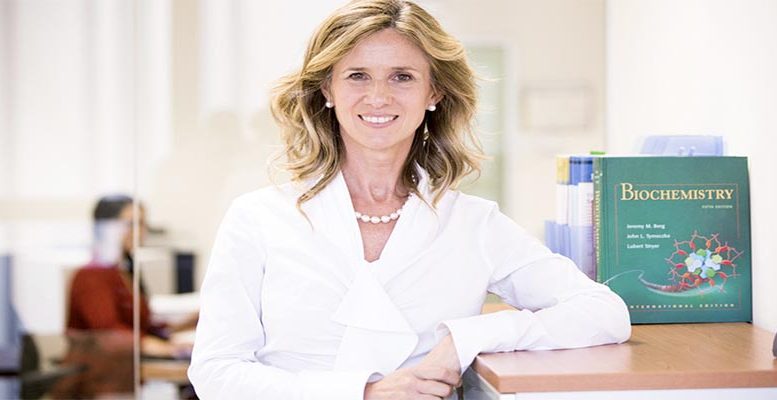Manuel Moreno Capa | This interview took place two weeks after the declaration of the State of Alarm, in place since March 15. And someone like Cristina Garmendia -scientist, businesswoman and former minister of Science and Technology- is surely amongst the best qualified to analyse many of the aspects concerning the biggest non-war crisis affecting us as far back as we can remember.
Q: Would you recommend any additional measures the Government should take to combat the economic effects of the coronavirus?
A: What the government needs now is to be allowed to work, rather than unsolicited recommendations and sterile criticism. The Prime Minister and the Cabinet are taking very hard and very difficult decisions amid an extremely serious situation, unknown to any generation which has not lived through a war. We must each do what we can in the fight against the pandemic, with our personal and professional resources. But now I think there are too many opinions. Those who need to make recommendations to the Executive are the experts and technicians, especially the scientists and health workers. The time will come later when we will all contribute what we know, and what we have learned from this crisis, in order to revive our economy and social welfare as soon as possible. That will also be the time to take stock and, if necessary, to call to account those who have not done things right. But that is not the case now.
Q: What about businesses?
A: Many companies are setting an example of responsibility in this crisis, providing resources to fight the pandemic and even producing basic goods to meet healthcare needs. They are the ones who are giving lessons in how to behave. The greatest challenge will be when we come out of the crisis, especially the SMEs. We do not know when or how we will get out, we only know that there is, for sure, an exit. So it is unwise to think of magic solutions at this time. We can only recommend prudence, responsibility and having confidence that the State, as a whole, will know how to provide a response showing solidarity for those who come off worst. As well as one that is effective for the whole of the productive system. Union will be fundamental in rebuilding the business fabric and reviving the economy, the priority once the health crisis is over.
Q:And at European level?
A: The European Union has an historic opportunity to show that we are stronger together. If it misses this opportunity, its future will be much more uncertain than it seemed after Brexit. The first reactions we have seen are perhaps not the best. However we must bear in mind that this situation has caught everyone on the wrong foot and the subsequent response will be the right one.
Q: Will the coronavirus crisis change the formulas for international cooperation on these issues? From what we have seen so far, there is a certain lack of coordination between countries, even between the members of the European Union…
A: A global threat demands a global reaction. International coordination is vastly more useful in responding to a pandemic than the populist and nationalist discourses prevailing in world public opinion in recent years. And the same is true for any other global threat, whether it is the climate emergency, terrorism or economic crises. Together we can face it. If everyone goes his own way, we will all fall. It’s as basic as that. The coronavirus crisis forces us to decide without any delay on health security, but it will also accelerate some other transitions in which we were already immersed. For example, the leap from analogue to digital, from the material to the intangible or from the traditional model of linear production and consumption to a circular economy.
Q: Biotechnology, one of the sectors permanently considered as emerging, will have more and more to contribute to the fight against pandemics…
A: It’s already doing it. Perhaps the revolution is not perceived by society, as it is in the case of digital technologies. That’s because a mobile phone or a computer are more visible products than a bio-pharmaceutical or a bio-fuel. But it would be a big mistake to continue to consider as emerging a sector that is already making a difference to our health, food or energy supply. The challenge is not to turn to the scientific community when an emergency like this arises, but to invest in knowledge much sooner. That is the way to get good results. And the same applies to the research sector.
Q: From your experience as an independent board member of Caixabank, do you see a need for a renewed innovation strategy in the banking sector?
A: The banking sector is facing important challenges which can only be addressed through innovation. Some are internal, such as the digitalisation process, which involves changes in practices, and others are not. However, in addition, the banking sector has to innovate even with regard to what its purpose is, its products, as well as address the reality of an economy increasingly based on investment in intangible assets (R&D, sustainability, talent, reputation, data, etc.). These are poorly measured and poorly valued in corporate accounts and in countries’ GDP. The financial sector in general, and banks in particular, have a great responsibility and opportunity in the development of the intangible economy.





